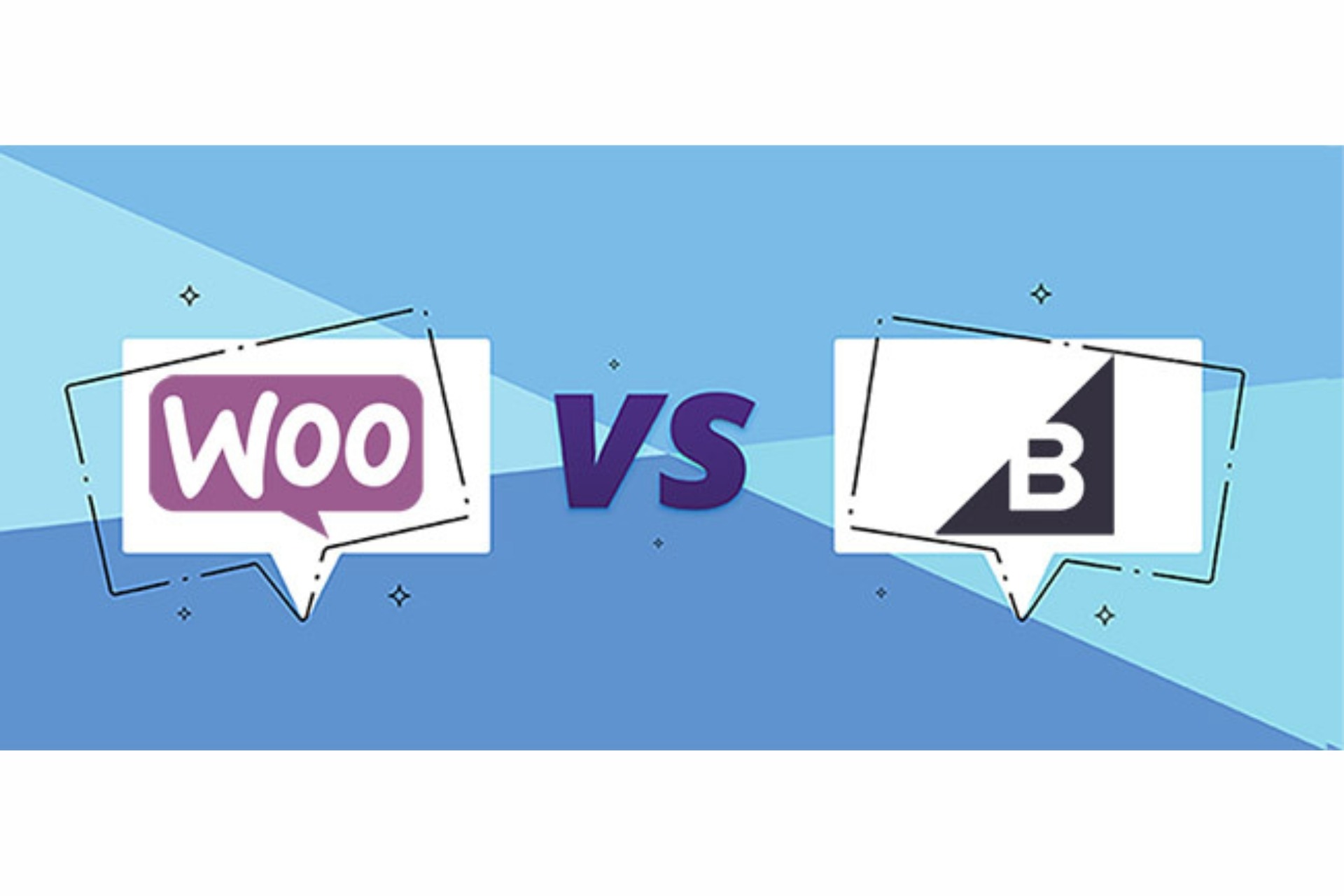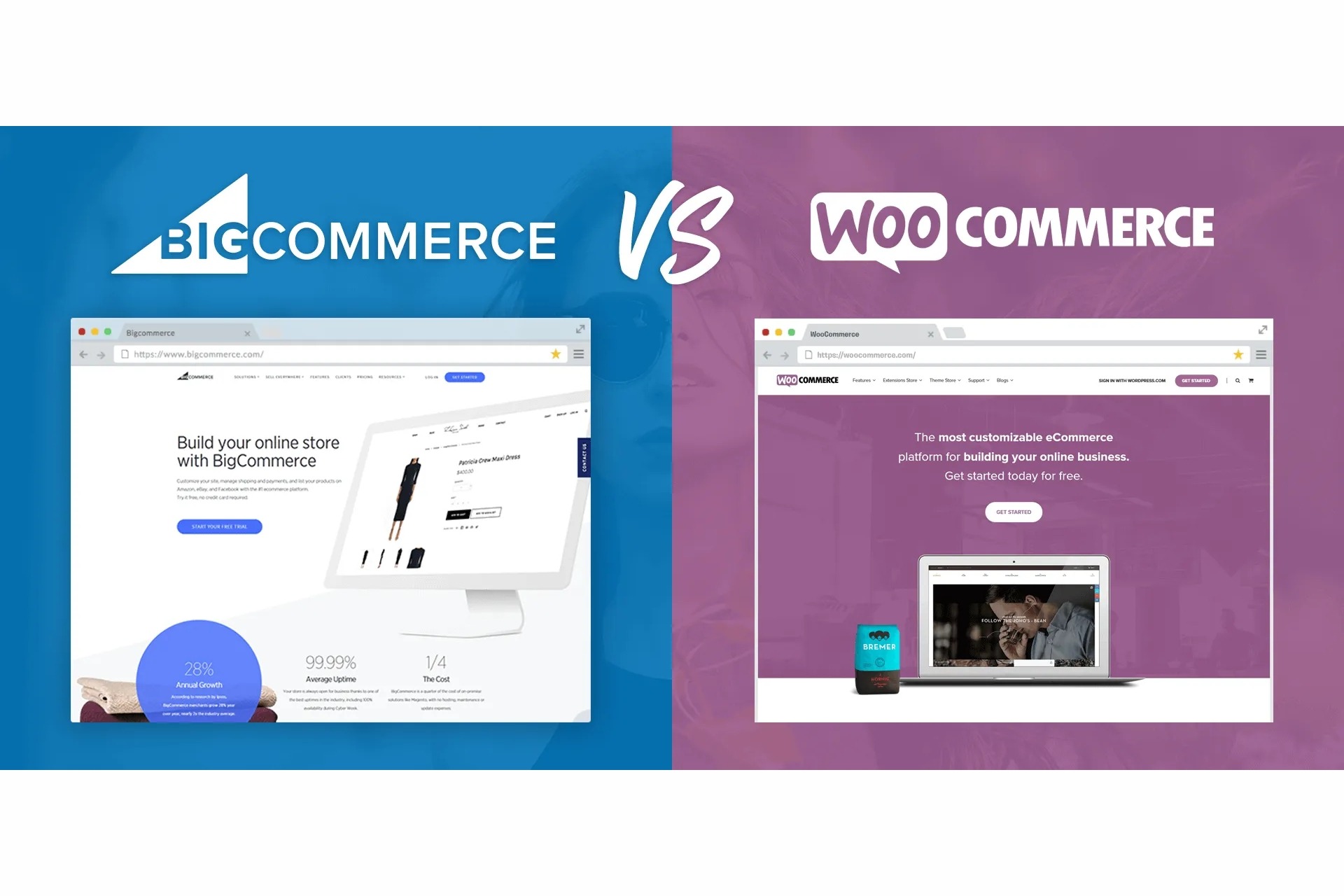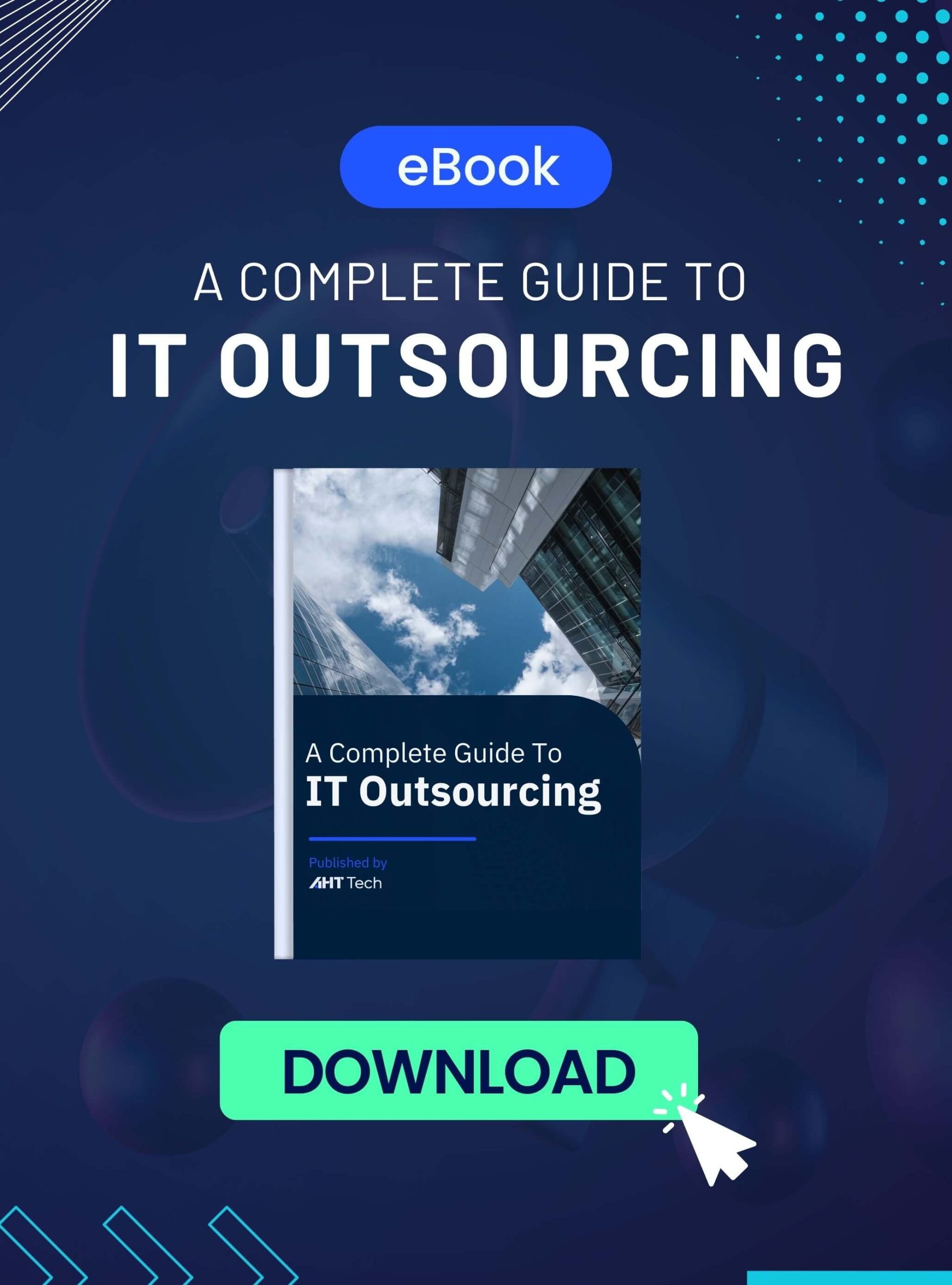TABLE OF CONTENT
Overview of BigCommerce vs. WooCommerce
Pricing
Features
Conclusion
Overview of BigCommerce vs. WooCommerce
BigCommerce is a completely hosted e-commerce platform that gives small to mid-sized businesses the ability to perform online store management better, as well as provides various features such as payment methods, marketing tools and shipping integrations.
Nevertheless, WooCommerce is an open-source e-commerce platform that enables WordPres to run in order. This also gives businesses the ability to perform flexibility, customization options better as well as technical knowledge and management skills.

Pricing
Pricing is considered to be one of the most important differences between BigCommerce vs. WooCommerce platforms. BigCommerce pricing gives businesses the ability to pay fees per month, from $29.95 to $299.95. The prices are different from features and support services.
On the other hand, businesses still have to pay extra costs to use WooCommerce such as web hosting, SSL certificate, etc. to run their online stores. Thus, WooCommerce’ usage pricing is higher than that of BigCommerce in general.
Features
Features are also considered to be influenced factors while choosing between BigCommerce vs. WooCommerce. Let’s get into details of each’s features.

Built-in Features of BigCommerce
Various features of BigCommerce give businesses the ability to perform professional online store better:
- Product Reviews: Businesses are able to perform product review systems (reviews and ratings) better as well as customers’ purchase decisions.
- Abandoned cart recovery: Businesses are able to send emails to customers automatically, as well as perform sales recovery and revenue better.
- Gift cards: Businesses are able to sell gift cards to customers as well as perform customer loyalty and sales better.
- Drag-and-drop website builder: Businesses are able to perform online store creation and customization better without the need of using coding skills.
Flexibility and Customization of WooCommerce
While BigCommerce provides various built-in features, WooCommerce highly focuses on the flexibility and customization features:
- Payment gateway plugins: Businesses are able to perform payment methods from various gateways such as PayPal, Amazon Pay or Stripe.
- Shipping and tax system: Businesses are able to perform shipping rates and tax systems better dependent on their needs.
- Extensive plugin library: Businesses are able perform various features and functions with the help of massive plugins and extensions.
- Built on WordPress: Businesses are able to leverage the WordPress community with the help of various themes and plugins.
Design and Themes
In order to serve businesses’ needs and wants, BigCommerce offers a range of customizable modern and professional themes such as drag-and-drop editor in order to give businesses the ability to perform their store’s design and layout better.
With the help of various WordPress themes and templates, more design choices are provided by WooCommerce in order to give businesses the ability to perform theme management and customization better. However, technical skills are needed as well, as this could prevent customers from experiencing features and functions.
Payment and Checkout Options
Businesses are able to utilize various payment methods of BigCommerce, such as PayPal, Square, and Stripe, as well as perform checkout processes (one-page, guest, checkout fields) better.
On the other hand, businesses need to run more tasks, such as setting up or managing to use WooCommerce’s payment gateways. However, they are still able to perform checkout processes as greatly as BigCommerce brings.
SEO and Marketing Features
With the help of BigCommerce’s built-in SEO tools such as customizable URLs or meta tags, businesses are able to perform marketing and promotions better such as email marketing, etc…
Similar SEO and marketing features are also offered by WooCommerc, however, businesses need permission to access these tools such as installment or plugin management. Nevertheless, businesses are able to perform customizations and integrations better.
Support and Documentation
While BigCommerce provides 24/7 customer service through various channels and formats, WooCommerce just supports through documentation and community forum. Both have various support services such as video tutorials, large community forums, etc. but it is clear that BigCommerce could offer more reliable support from its base.
Ease of Use
Businesses are able to perform online store customization with BigCommerce’s drag-and-drop website builder in an easier way, as well as order and inventory management. Businesses don’t need any coding skills or technical expertise to develop their online stores.
On the other hand, WooCommerce is famous for its flexibility and customization options, as businesses are able to perform their online store better with the help of various features and functions such as extensions and plugins. However, technical knowledge is necessary in the process of using this platform. Thus, this makes it more difficult for WooCommerce to attract some businesses. They would pay more fees to run their businesses if they chose WooCommerce as an ideal partner. Overall, the business’s needs and desires will impact the way they choose BigCommerce or WooCommerce.
Conclusion
Both BigCommerce and WooCommerce are recommended for performing great online stores. While BigCommerce is suitable for small to mid-sized businesses with the help of exemplary interfaces and features, WooCommerce provides flexibility and customization along with the need for technical knowledge and skills.
BigCommerce is suitable if you need to simplify and use the solution easier. On the other hand, WooCommerce is recommended if your business lacks design control and functionality. You will also need the ability to use technical skills while using this platform. It is a belief that you could select the most accurate platform for your business and online stores with careful thought and consideration. Contact us for assistance with an E-commerce platform that you may need.



